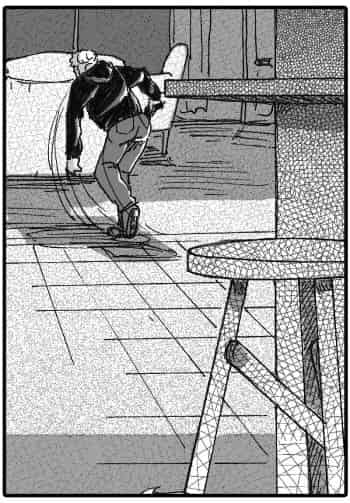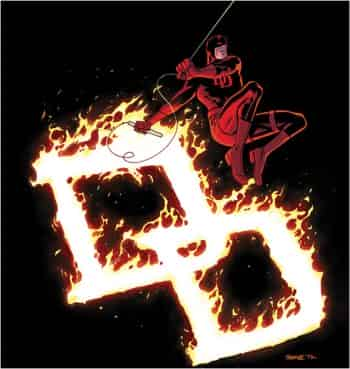Bonus
-
Respecting the characters
Here’s what Sara Lima had to say about Power Girl: “There’s nothing wrong with Power Girl’s old costume. I really felt it was okay for PG to show cleavage with the hole in her suit if it meant that in her comic she would be treated with a certain level of dignity; which is what we had in Jimmy Palmiotti and Justin Gray’s self-titled POWER GIRL series. I would argue that Power Girl is more “cheesecake” now than ever before, and it’s getting ridiculous. The fact that her suit is torn to shreds in every issue seems to be some kind of running joke—and it’s getting really tired. It feels like the writer doesn’t have respect for the character. What other purpose does her character serve aside from being there to get naked? It feels tawdry. For whatever reason, rather than giving PG her old costume back, someone feels it’s more interesting to tear up her new one” (“What’s Wrong with the Huntress and Power Girl in the ‘New 52’?” Sara Lima, October 18, 2012, www.comicvine.com).
What we like in this tirade is the use of the word “dignity.” We must in fact grant our characters a form of respect, not only to avoid running gags about them but also to respect their actions, especially their most objectionable ones. This doesn’t mean that the writer approves of these actions but simply, that if they can’t be avoided, these actions must be consistent with the character’s nature.
-
Writing tips – Part II
Everyone has advice for story writers. We feel that Miranda Parker makes a very apt recommendation: “At the same time, don’t give yourself away. If you don’t know, don’t go there. My rule of thumb is, if I don’t know something without looking it up, I’m usually better off working around it. When you drop in undigested research morsels, the reader can feel it in his teeth” (“Don’t Write What You Know. Write Like You Know,” Miranda Parker, J. Mark Bertrand, thethrillbegins.blogspot.ca, September 20, 2012).
We spent months researching an illness for Cordo: one that would be incurable, that would advance relatively quickly but whose progress could be slowed. We didn’t find anything conclusive, and in the end, we decided to keep the illness vague rather than become mired in pointless explanations. Ultimately, we don’t think the story suffers from it.
-
Inconsistencies and story
We’ve already mentioned the inconsistencies can be deliberately left in a scene to amplify mystery or even realism, since after all, we don’t always behave logically. But other inconsistencies may not necessarily be voluntary. In his analysis of the character of Goldfinger in the movie of the same name, Darren notes the following: “Like a lot of Goldfinger’s actions over the course of the film, one wonders why he didn’t just ask Oddjob to remove the gold from the car before he crushed it. After all, Solo was dead and unlikely to complain. Perhaps, like the rest of Goldfinger’s somewhat contradictory actions, it just allows the man to show off, feeding into his desire for attention and his demands for respect. Perhaps he just gets a giddy thrill at the idea that his gold blocks have mingled with a mushed-up gangster” (A View to a Bond Baddie: Auric Goldfinger, Darren, them0vieblog.com, October 4, 2012).
The French-language Wikipedia page on the movie Once Upon a Time in the West brings up similar questions about an injury suffered by Charles Bronson’s character. One of the theories is that the script wasn’t well understood during the editing process.
In the box below, taken from our story ” A Man to Kill,” we see Chad getting up but he has his back to the action when he should have been facing it. This is one inconsistency that got past us, despite several production stages.

-
Compression and decompression
“We don’t often spend enough time on ramifications in mainstream comics, so here was a place to build a whole storyline around them.” —Ed Brubaker (“The Ed Brubaker ‘Captain America’ Exit Interview,” David Brothers, comicsalliance.com, November 1, 2012).
Brubaker’s statement reminded us of a piece written by Renaud Pasquier (« “Homeland” met en scène le nouveau Jack Bauer de l’Amérique parano », Le Nouvel Observateur, September 29, 2012), in which he analyzes the first season of the TV series Homeland: ” However, this story won’t at all engage in a furious investigation fueled by the fateful ticking of the clock. What gives fiction its rhythm is time, not external or mechanical time, but something intimate and organic. The irregular and non-linear time of experience; the time of suspicions, doubts and hesitations; the time of emotions, thoughts and memories; but also, the time of delusions” [translation].
In an interview with Mark Waid, Tom Spurgeon used the word “decompression” to talk about Waid’s writing style (Interview # 22 – Mark Waid, www.comicsreporter.ccom, January 10, 2013). We like the image the word creates. We’d like to refine this a little and suggest there is an analogy to be made with the accordion: you need to let air into the instrument (decompression) in order to produce sounds (compressions). If our stories operate only in action mode (compression), they can no longer breathe, there is no longer time to come to understand the characters, their motivations, their evolution. Compression and decompression: that’s our recipe.
-
Mark Waid
Mark Waid is an author we only got to know recently through his work on Daredevil, which really impressed us. His stories seem almost “anticlimactic.” For example, in the seventh issue, Daredevil faces a snowstorm. And issue 12 is focused on the time when Matt and Foggy were studying law and had a confrontation with their teacher. The fight scenes are relatively short and rarely occupy a whole issue.
Curiously, without seeming spectacular at first glance, Mark Waid’s writing is stimulating and these issues are some we often reread. We also recently learned that Mark Waid doubles as a thinker on the impact of the Internet on comic production.







